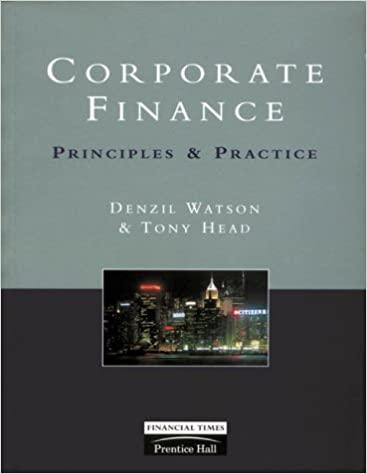Question
Mr. X will be incorporating his sole proprietorship in the very near future. As such, he is planning on visiting his CPA advisor for tax
Mr. X will be incorporating his sole proprietorship in the very near future. As such, he is planning on visiting his CPA advisor for tax planning advice. He provided the following list of assets which he is considering transferring over to the new corporation: 1. Cash: -Cost = $30,000 -Adjusted Basis = $30,000 -FMV=#$30,000
2. Equipment: -Cost = $70,000 -Adjusted Basis = $50,000 -FMV = $50,000
3. Building: -Cost = $150,000 -Adjusted Basis = $120,000 -Building = $150,000
Mr. X lives in a high tax state resulting in a combined marginal federal and effective state tax rate for the current tax year of 40%. While is planning to transfer all the assets to the corporation, he will ultimately sell the building in 18 months. The CPA believes that the corporation will be at a combined state and federal tax rate of 28% at the time of the building sale. Lastly, the FMV of the building will be slightly lower as a result of depreciation resulting in a FMV of $130,000 by the time he sells the building.
Here are the questions I need help with:
1. What would be the tax consequences if Mr. X sells the building within 2 years of its tax-free transfer to the corporation? Are there any gains or losses and if so, how much?
2. What would be the tax consequences if Mr. X instead decides to sell only the building to the corporation for $120,000 in promissory notes?
3. What are some of the tax and non-tax consequences (positive or negative) of keeping the building outside of the corporation? Explain your answers.
Step by Step Solution
There are 3 Steps involved in it
Step: 1

Get Instant Access to Expert-Tailored Solutions
See step-by-step solutions with expert insights and AI powered tools for academic success
Step: 2

Step: 3

Ace Your Homework with AI
Get the answers you need in no time with our AI-driven, step-by-step assistance
Get Started


